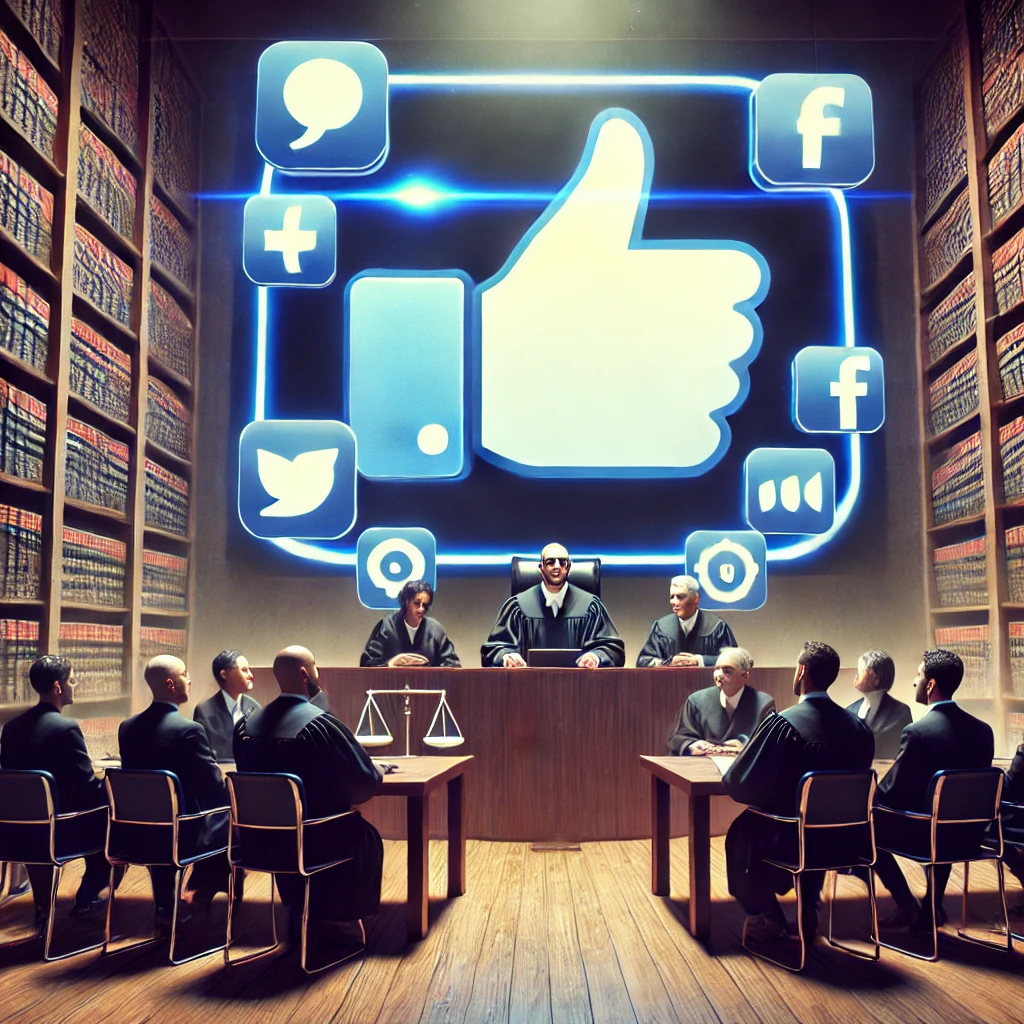Social media has become an integral part of daily life, shaping how individuals communicate, share information, and interact with the world. However, as the popularity of these platforms has grown, so has the potential for legal challenges. A “drive social media lawsuit” is a term that captures the rising trend of individuals or businesses pursuing legal action in response to various social media-related issues. Whether it’s defamation, invasion of privacy, or intellectual property infringement, social media lawsuits have emerged as a significant legal concern. This article explores the key legal implications of social media, focusing on the factors driving these lawsuits and the consequences that both individuals and companies face when navigating the online world.
The Rise of Social Media Lawsuits
Social media platforms like Facebook, Instagram, Twitter, and TikTok have revolutionized how people communicate and share content. These platforms allow users to create and share personal and professional narratives, often without realizing the potential consequences of their posts. As users have become more active in their digital interactions, the number of lawsuits related to social media has also skyrocketed. Legal disputes now span a wide range of issues, from slander and libel to intellectual property theft and harassment.
Common Types of Social Media Lawsuits
Defamation Lawsuits
One of the most common reasons for a “drive social media lawsuit” is defamation. Defamation occurs when a false statement is made about an individual or organization, which harms their reputation. On social media, defamation can spread quickly due to the viral nature of online content. A simple post or tweet can reach millions of people in a matter of hours, amplifying the potential damage caused by defamatory remarks.
In defamation lawsuits related to social media, plaintiffs may seek damages for harm to their reputation, loss of income, or emotional distress. For instance, a public figure or business might file a lawsuit if someone spreads false and damaging information about them online. While the defendant in such cases may attempt to argue that their statements are protected by the First Amendment (in the United States), courts often have to balance freedom of speech with the right to protect one’s reputation.
Privacy Invasion and Data Breaches
Privacy issues have also led to a rise in social media lawsuits. The collection, sharing, and misuse of personal information by social media companies have prompted legal action, particularly in relation to data breaches and unauthorized access to private accounts. For example, if a user’s private data is exposed due to inadequate security measures or deliberate hacking, they may file a lawsuit seeking compensation for damages.
Moreover, individuals may also pursue lawsuits for breaches of privacy when personal information is shared without consent. A popular example is when individuals post pictures or videos of others without their permission, resulting in potential emotional distress or reputational harm. Social media platforms have faced lawsuits from users who believe their data was used inappropriately or without adequate consent.
Harassment and Cyberbullying
Social media has unfortunately become a breeding ground for cyberbullying and harassment. With the anonymity that the internet provides, many individuals feel emboldened to engage in harmful online behavior. Harassment on social media can take many forms, from direct threats to public shaming and trolling. Victims of online harassment often seek legal recourse, including filing lawsuits for emotional distress, personal injury, or defamation.
One example of a drive social media lawsuit in this context is when a person files a case against an individual or even a platform that has failed to prevent abusive behavior. Social media companies have faced lawsuits from individuals who argue that these platforms should be held accountable for not removing harmful content or taking action against users who engage in bullying.
Intellectual Property Infringement
Another area that often drives social media lawsuits is intellectual property (IP) infringement. Social media platforms make it easy to share content, but this can lead to violations of copyright, trademark, or patent laws. Users may unknowingly or intentionally post copyrighted materials, such as music, images, or videos, without obtaining the necessary permissions from the content creators. In such cases, the rightful owners may pursue legal action to protect their intellectual property rights.
Social media platforms, like YouTube and Instagram, have implemented systems to identify and remove infringing content. However, this has not eliminated the risk of IP disputes. In fact, many copyright holders pursue legal action against individuals or organizations that continue to infringe upon their rights, leading to the rise of lawsuits in the digital age.
The Legal Challenges of Social Media Lawsuits
While social media lawsuits are becoming more common, they also present unique legal challenges. The anonymous nature of many social media users can make it difficult to identify the responsible party. Furthermore, the rapid spread of information and content across multiple jurisdictions can complicate the application of laws.
Jurisdictional Issues
One of the most significant challenges in a drive social media lawsuit is determining jurisdiction. Social media platforms are global in nature, and a single post or tweet can reach users in multiple countries. This can create complications in determining which legal system has authority over a particular case. In some instances, the court may need to determine whether the platform’s terms of service or local laws should apply to the dispute.
For example, if a user in the United States posts defamatory content about a person in another country, which country’s defamation laws should apply? Similarly, when a company based in one country is sued for failing to protect user data under a different country’s privacy laws, jurisdiction becomes a complex issue.
Platform Liability and Legal Protections
Social media platforms often enjoy a level of immunity under laws such as Section 230 of the Communications Decency Act (CDA) in the United States. This law shields platforms from liability for user-generated content, allowing them to host content without being held responsible for defamatory or illegal material posted by users. However, there are exceptions, such as when the platform itself engages in illegal activity or is found to have been negligent in removing harmful content.
The increasing number of lawsuits has prompted calls for reform of these legal protections, with many arguing that platforms should be held more accountable for user-generated content. At the same time, social media companies argue that without these protections, they would be unable to function effectively, as they would be bogged down by an overwhelming number of legal claims.
Consequences of Social Media Lawsuits
The consequences of social media lawsuits can be far-reaching. For individuals, the financial and emotional toll can be significant. Legal fees, damages, and emotional distress can result from being involved in a lawsuit. In cases of defamation or harassment, the damage to one’s personal or professional reputation can be long-lasting, especially when negative content is spread across a vast audience.
For businesses, the stakes are even higher. A social media lawsuit can lead to negative publicity, loss of customers, and financial penalties. Brands must be especially careful in monitoring their online presence to avoid inadvertently offending customers or employees, or allowing harmful content to proliferate on their platforms.
Preventing and Responding to Social Media Lawsuits
There are several ways to minimize the risk of facing a drive social media lawsuit. For individuals, it’s essential to be mindful of the content they post, ensuring that it does not infringe on the rights of others or harm someone’s reputation. It’s also important to respect others’ privacy and refrain from engaging in harmful or defamatory behavior online.
For businesses, implementing strong social media policies, training employees, and monitoring online activity are vital steps in preventing legal issues. In cases of potential defamation, privacy breaches, or harassment, companies should act quickly to address the issue and mitigate harm before it escalates into a lawsuit.
Conclusion
The rise of social media has fundamentally changed how people interact with the world, but it has also introduced a new set of legal challenges. As lawsuits related to defamation, privacy violations, intellectual property infringement, and harassment continue to increase, individuals and businesses must be more aware of the legal implications of their online actions. Social media companies, in particular, face growing pressure to reform their policies and ensure that they are not enabling harmful behavior or neglecting their users’ rights.
Ultimately, navigating the complexities of social media lawsuits requires a balanced understanding of the law, a proactive approach to risk management, and a commitment to responsible online behavior. By taking the necessary steps to protect themselves, users and businesses can minimize the risk of being involved in costly and damaging legal disputes.



